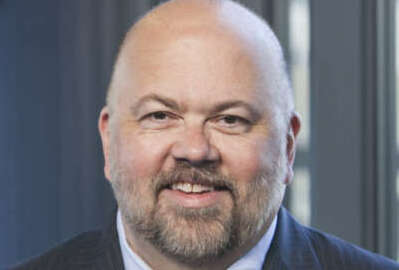
Draining the swamp: Now what?
Federal unions were delighted last week when George Nesterczuk withdrew his nomination to be director of the Office of Personnel Management.
The surprise decision of George Nesterczuk to withdraw as a candidate to head the Office of Personnel Management cheered federal unions and some, maybe many, feds who remember the Reagan years as a nervous time to be a fed. But his withdrawal from consideration can also be viewed as a blow to the administration’s promise/threat to shake, rattle and roll the federal bureaucracy, making it skinnier and more responsive. And less fireproof. Or not.
It is equally possible that the next OPM director, when nominated and confirmed, could come in with an even tougher agenda, but with less knowledge of how the civil service systems function.
Nesterczuk’s departure — five months after he was nominated — is also an example of the problems many agencies are facing because so many key political jobs are either vacant or held by appointees from the Obama administration.
The rudderless OPM has been without a confirmed director since 2015. Although the agency is little known outside of government and outside of Washington, it plays a critical role in the work lives of civil servants and retirees.
Nesterczuk’s first federal job was as an astrophysicist at NASA’s Goddard Space Flight Center. After leaving government, he was active in Republican politics in Maryland and ran Ronald Reagan’s campaign in the state. He was later appointed as associate director for executive personnel at OPM under its controversial director Donald Devine. During the Reagan years, many federal workers — and especially federal and postal unions — felt unloved, at best, and under attack at worst.
Nesterczuk drew additional union fire for helping set up a Bush administration initiative called the National Security Personnel System. It was a Defense Department program the administration hoped to expand to other agencies. Under it, managers would have the ability to set employee pay within bands (rather than the traditional 15 grades) based on their performance. Unions balked at it, and complained that they had little input. As a result, the 200,000 workers put under the NSPS were all from outside union bargaining units. Pay raises for many exceeded the regular annual federal pay raises. This being Washington, each side had a conspiracy theory with each claiming both success and the moral high ground.
The Bush administration said it was proof that when motivated and given more opportunities, workers rose to the challenge. Unions said the same thing, in reverse. They claimed that political appointees at the Pentagon gave NSPS workers bigger raises to prove that the new system worked, And possibly stick it to unions too. In any case, the Democratic Congress unraveled it and the 200,000 feds who had been under the NSPS were blended back into their previous grades, but often at higher pay.
For critics of the Reagan administration’s approach to the federal workforce, Nesterczuk is credited/blamed for working under and closely with Devine during what some people refer to as the “Devine Years.” One former congressional staffer-turned lobbyist who followed the federal-postal beat said:
“Remembering that the demise of the CSRS retirement plan occurred as a result of the bipartisan agreement between Democrat Tip O’Neill and Republican Ronald Reagan to bail out Social Security by forcing new federal employees into that program, Mr. Nesterczuk’s previous tenure at OPM was marked by no significant lasting cuts in employee benefits, the congressional establishment of the successful Federal Employees Retirement System (over the objections of Nesterczuk and his old boss [Devine] who wanted only a “super IRA” for feds), and the start of significant membership growth by at least two civil service unions that have sustained their efforts to this very day. The unions may cheer Nesterczuk’s withdrawal, but it is useful to remember that his past record is one of ineffectiveness. Now President Trump has a chance to nominate someone who can really do some damage.”
Rep. Steny Hoyer (D-Md.) said he was glad Nesterczuk withdrew his nomination, which he said was “extremely concerning from the outset,” specifically his previous role with the failed Defense (NSPS) system. He cited a number of GOP proposals from Congress and the White House to make federal workers pay more toward their retirement, while reducing or eliminating inflation-protection for current and future retirees.
Bill Valdez, president of the Senior Executive Association, said he’s “very disappointed that George withdrew as a candidate because we thought he brought the right skill set to OPM. Although he’s been criticized for his NSPS experience at DoD, we were confident after conversations with him that he had learned the appropriate lessons about how to develop a performance system that rewards high performance and incentivizes workers to fulfill their taxpayer missions. We hope the Trump administration will nominate someone of his caliber and experience,” he said. SEA represents the career members of the elite Senior Executive Service.
A former congressional staffer who frequently tangled with Nesterczuk said, “Remember the old line about being careful about what you want, because you may get it? In the old days, George had to work for Don [Devine], who was very unpopular with unions, many rank-and-file civil servants and most of the media. But George is very smart, knows the government from his time at OPM and on the Hill. When the next person is nominated, George may look very good by comparison.”
Nearly Useless Factoid
The origin of the name “Dixie” in reference to the southern region of the U.S. can be traced back to currency issued by the Citizens State Bank in New Orleans. The reverse side of $10 notes was labeled with the “Dix,” the French word for 10.
Source: Wikipedia
Copyright © 2025 Federal News Network. All rights reserved. This website is not intended for users located within the European Economic Area.
Mike Causey is senior correspondent for Federal News Network and writes his daily Federal Report column on federal employees’ pay, benefits and retirement.
Follow @mcauseyWFED





